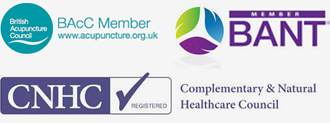A fertility diet for over 40’s can improve your chances of getting pregnant. Getting pregnant can be quick for some and trickier for others. Because even though we may all be the same chronological age – but as far as fertility goes, we don’t all age equally. In other words, it can be very individual. Some women have more follicles and eggs than others. Where as some have less eggs but they’re better quality. So, if we know how to protect the quality and amount of eggs we have as we hit 40; it can make all the difference.

What we do know is that the best ways to support egg quality, reduce age related chromosomal abnormalities and help eggs fertilise better is to follow a Mediterranean-style diet.
What is a Mediterranean Style Diet?
When we think of Mediterranean food we think of holidays in the sun. We visualise plates of seafood – mussels, prawns, lobster, langoustine and grilled fish. Perhaps finished off with garlic and a generous squeeze of lemon. Or you might think of roasted meat, chicken and vegetables drizzled with olive oil and handfuls of fresh herbs. Or even, bean soups, huge mixed salads, goat’s and sheep’s cheeses, platters of colourful fruit and local honey. But how do we recreate this abundance of fresh, local produce when we get back home?
Eat a Rainbow of Fruit and Vegetables
A fertility diet for over 40’s needs to be full of colourful pigments from the skins of fruit and vegetables rich in flavonoids. These are natural chemicals which protect the plants from damage and when eaten, protect us too. Antioxidants like resveratrol and anthocyanins from berries and dark skinned red and black grapes reduce free radicals. As does quercetin from apples. As well as Naringenin, Limonene and Rutin from citrus fruit. Then there are tannins and catechins in green and black tea. Plus, curcumin in turmeric. As well as lycopene in tomatoes, watermelon and pink grapefruit are just a few of a long list. Natural chemicals which reduce inflammation, support detoxification and reduce free-radical oxidative damage to eggs and the womb lining.
Aim for 7-10 portions of fruit and vegetables daily
If you would like to get more of them into your daily diet try having more smoothies, salads, fresh juices, soups, curries, stir fries and stews to get as much variety of antioxidants as possible.
- Start the day with hot water, ginger and lemon
- Have a green tea with breakfast
- Add berries, apple, grated ginger and kiwi to your breakfast granola, porridge or Bircher muesli
- Have a homemade smoothie mid-morning
- Make yourself a large mixed salad with chicken, beans, mackerel or salmon for lunch.
- Have chopped carrots, broccoli, red pepper or fennel with a bean dip or guacamole for your mid-afternoon snack.
- Use liberal amounts of fresh and dried herbs like basil, thyme, rosemary and basil in your soups, stews and salads.
- Have 3-4 different steamed or lightly cooked dark green leafy veg plus carotene rich butternut squash, carrots or orange, yellow or peppers with main meals.
- Have cauliflower rice or courgetti instead of white rice or spaghetti.
Why Dark Green Leafy Veggies are a Must
A fertility diet for over 40s needs to include plenty of fruits and vegetables. And especially dark green leafy veg but also nuts, beans and wholegrains are rich sources of folate. Folate plays a major role in the rolling out of DNA in the newly hatching egg and rapidly dividing foetus. We know diets low in folate are linked to increased rates of miscarriage and genetic defects which get worse with age.
Research shows folate helps methylation – a key biochemical process to get right during preconception and pregnancy. As poor methylation can contribute to neural tube defects, early pregnancy loss plus low egg quality and maturation.
You can find key nutrients and methyl donors like folate, B2, B6, B12, glycine, serine and choline in dizzyingly beneficial combinations in a typical Mediterranean diet.
Fruit, dark green leafy vegetables, chicken, liver, fish, seafood, lamb, beef as wells as eggs, lentils, chickpeas, flaxseeds all support higher rates of natural and assisted conception. They also promote healthier egg cell membranes, lower miscarriage rates, less neural tube defects and more healthy births.
Folate or Folic Acid?
Did you know, folate is the natural form of folic acid found in food. Women are advised to take a 400 mcg folic acid supplement during preconception and 600 mcg when pregnant. While women diagnosed with an MTHFR SNP may need as much as 800 mcg or more.
A MTHFR SNP ( Single Nucleotide Polymorphism) is an inherited genetic variation which reduces the ability to convert folic acid to its most body ready form (methyl folate or 5-MTHFR).
If you haven’t yet been tested and are unsure whether you have an MTHFR SNP, or not, ensure you eat plenty of folate-rich foods and choose a pregnancy multivitamin, containing 5-MTHFR as a good insurance policy.
Mediterranean Diets Are High Protein
A fertility diet for over 40’s – high in protein can reduce inflammation, reduce weight, balance hormones and regulate ovulation in women with PCOS, endometriosis and metabolic syndrome. Diets low in protein reduce fertility. But best not to eat too much and keep it lean. As an average of 1g per kg of weight – spread over all your meals and snacks throughout the day- is considered to be a good rough guide to how much you need.
Amino Acids
Digestion breaks protein down into amino acids – there are 20 in all. Nine come from the food we eat and the body is able to make the rest.
Arginine
In one study, women going through IVF considered to be ‘poor responders’ in previous assisted cycles, produced more eggs and had higher pregnancy rates when given the amino acid, Arginine.
Pumpkin seeds have the highest levels plus other seeds, nuts – almonds, walnuts, pine nuts, seaweed, tofu, chickpeas, meat and chicken.
Carnitine
Whilst in an another study, Carnitine ( found in red meat, fish, chicken and whey in milk) improved the quality of the peritoneal fluid in women with endometriosis and reduced egg or oocyte damage.
COQ10
As we age ovarian tissue levels of CoQ10 naturally decline. So beef, liver, pork, chicken, chicken livers, fatty fish and other proteins like lentils, sesame seeds and pistachios are all rich sources. Also oocytes depend on CoQ10 for energy and repair. Because it powers their mitochondria or energy producing ‘batteries’ of oocytes and protects them from age-related oxidative damage. And there are a whopping 200,000 mitochondria in every egg – more than anywhere else in the body. By contrast, sperm only have 16. So, keeping CoQ10 levels topped up via diet and supplementation is vitally important for egg health, especially over 40.
Melatonin
Melatonin, a hormone produced in the pineal gland from the amino acid, tryptophan, is best known for regulating the sleep-wake cycle; but it is also a powerful free-radical scavenging antioxidant able to mop up accumulated DNA damage. Researchers found that it protects older eggs from chromosomal defects and apoptosis or cell death. Nuts, eggs and fish are good natural food sources.
Keep Carbs Low & Slow
Keeping carbohydrates Low GI or Low Glycaemic also improves fertility outcomes for women of all ages. The Glycaemic Index is a measure of how quickly foods release glucose into the bloodstream. Low GI carbs release glucose into the bloodstream more slowly than processed carbs. Excess amounts of refined, sugary foods lead to weight gain, inflammation, insulin resistance, PCOS, fibroids, endometriosis and increased miscarriage risk
A fertility diet for over 40’s works best if we cut out High GI carbs like white potatoes, white rice and white bread and replace with Low GI sweet potatoes, butternut squash, brown rice, buckwheat, quinoa, brown pasta or whole grain bread. Excess amounts of glucose from refined, sugary foods leads to excess weight gain, inflammation and insulin resistance as well as like PCOS, fibroids, endometriosis and increases miscarriage risk
Eat Low GI Carbs in Moderation
They should occupy no more than a ‘fist sized’ portion on your plate. A palm-sized portion of lean protein like chicken or fish is a good rough guide to how much protein you need on a fertility diet and the rest of your plate, that’s over half should be piled high with colourful vegetables and salad. Don’t base your meals around carbs but around protein. Think protein and veg and crowd the carbs out.
Get Fats Right
A Mediterranean style diet gives us access to a smorgasbord of mono and polyunsaturated (MUFA’s and PUFA’s) from plants, oily fish, flax, nuts and seeds plus saturated fats from dairy – goat’s and sheep’s cheese, butter and grass-fed milk.
Low fat diets are associated with ovulation failure, no periods and poor egg quality. Fats help make the sex hormones – oestrogen and progesterone. Without fats we can’t absorb the fat-soluble vitamins D, E, K and A.
Vitamin D has a multitude of roles in preconception and pregnancy including maintaining the corpus luteum, endometrium or womb lining so fertilised eggs can implant and survive.
To make sure you’re getting enough ‘good’ fats: add 2-3 tablespoon of ground flaxseeds to your breakfast muesli; snack on a handful of walnuts, brazils or almonds; sprinkle generous amounts of toasted sunflower and pumpkin seeds onto salads, soups and veggies; eat avocado mashed or sliced on sourdough or add to salads; make organic virgin olive oil salad dressing or drizzle over roasted or steamed veg; eat nut butters; have small amounts of full-fat grass fed cheese and milk and butter and eat oily fish 2-3 times a week.
Are You Getting Enough Oily Fish?
And did you know, S.M.A.S.H – salmon, mackerel, anchovies, sardines and herring or fish oil are the highest sources of Omega 3 Fatty Acids. Although, they’re also found in smaller amounts in flax, chia and walnuts. So it’s a fact that good amounts of Omega 3 fatty acids reduce inflammatory cytokines in women with endometriosis, improve egg quality and lower raised FSH ( a marker of low ovarian reserve) in older women.
Researchers have also found that mice fed an Omega 3 rich diet had more follicles, better quality embryos and less infertility. Those fed an Omega 3-rich diet all their lives also prolonged their reproductive life. And at the time when most mice were infertile those on an Omega 3-rich diet carried on producing healthy eggs and getting pregnant.
Not only that, even the mice fed an Omega 3 rich diet just at the point when their fertility was about to reduce were also able to produce better quality eggs.
The researchers concluded eating an Omega 3 rich diet could ‘ provide an effective and practical means to delay ovarian ageing and improve oocyte quality’ in older women.(18)
It’s now known that egg quality and ovarian reserve decline over 40 and not much can be done about it. But this view flies in the face of mounting evidence that a fertility diet for over 40’s which is Mediterranean in style can protect egg quality, preserve ovarian reserve and may even prolong fertility in older women. It could also explain why some women have more and better quality eggs than others.
Research
1.https://www.ncbi.nlm.nih.gov/pmc/articles/PMC5069312/
2.https://www.ncbi.nlm.nih.gov/pmc/articles/PMC6079277/
3.https://academic.oup.com/humrep/article/33/6/1063/4989162
4.https://www.ncbi.nlm.nih.gov/pubmed/21432698
5. https://www.ncbi.nlm.nih.gov/pmc/articles/PMC4172634/
6. https://www.ncbi.nlm.nih.gov/pmc/articles/PMC6568019/
7. https://pubmed.ncbi.nlm.nih.gov/10402369/
8. https://pubmed.ncbi.nlm.nih.gov/18394615/
9. https://pubmed.ncbi.nlm.nih.gov/19732879/
10. https://www.ncbi.nlm.nih.gov/pmc/articles/PMC6807363/
11. https://www.ncbi.nlm.nih.gov/pmc/articles/PMC5372867/
12. https://www.frontiersin.org/articles/10.3389/fendo.2019.00346/full
13.https://fertilityresearchandpractice.biomedcentral.com/articles/10.1186/s40738-015-0003-4
14.https://pubmed.ncbi.nlm.nih.gov/17329264/
15. https://www.ncbi.nlm.nih.gov/pmc/articles/PMC6122064/
16 https://www.ncbi.nlm.nih.gov/pmc/articles/PMC5933167/
17. https://pubmed.ncbi.nlm.nih.gov/26523525/18. https://www.ncbi.nlm.nih.gov/pmc/articles/PMC5624332/


Leave a Reply